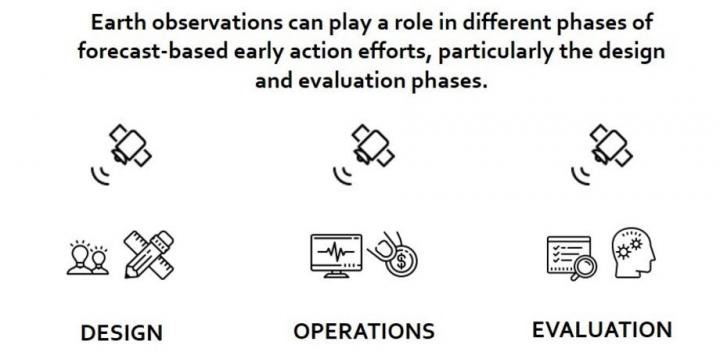Earth observation data could help the humanitarian community reduce the destruction of natural disasters

Credit: Nauman et al.
As climate change increases the occurrence of catastrophic natural disasters around the world, international organizations are looking for ways to reduce the risk of such disasters. One approach under exploration is the humanitarian community’s forecast-based early action (FbA), which seeks to enable pre-emptive actions based on forecasts of extreme events.
With FbA, disaster response shifts toward anticipating disasters to ameliorate their destructive effects. However, the development of data-based triggers and metrics for action rely on timely and accurate information. A group of researchers publishing in SPIE’s Journal of Applied Remote Sensing believes that some of that information can be provided by Earth observation (EO). In “Perspectives on flood forecast-based early action and opportunities for Earth observations,” Claire Nauman et al. focus on flood forecasts and identify opportunities to incorporate Earth observation data into flood FbA.
Efforts have been made to focus on risk reduction, but in the past two decades, only a small percentage of funding for disasters has been spent to decrease disaster risk. The overwhelming majority of funding has been spent on emergency response, reconstruction, and rehabilitation. However, preventive action to avoid disaster losses could provide significant return on investment, both by avoiding losses and by increasing economic activity in areas prone to destructive weather events. However, action often is not taken in response to early warning systems, but only after destruction has occurred. FbA systems are intended to change that fact, enabling pre-emptive action based on a forecast, even under uncertain conditions.
FbA programs often take one of two primary approaches – predefined triggers or real-time forecast-informed decision-making – to determine when action is needed. This paper focuses on predefined triggers because such triggers are a new aspect of FbA that differentiate them from early warning systems. “Triggers are defined by the danger level or magnitude of a forecasted event (e.g., 100 mm of rain over 24 h) and forecast probability (e.g., 80% chance of the event occurring),” the study says.
Recently, FbA triggers have also been defined based on impact, instead of hazard, in keeping with guidelines proposed for impact-based forecasting. For example, an impact-based trigger would prompt action if a defined percentage of homes are forecasted to flood.
As EO science advances and FbAs become more common, the two communities will find new ways to connect, not only regarding flood impacts but also for other destructive events, such as forest fires, droughts, heat waves, volcanic eruptions, and others. “Flood early warning systems are still many years away from producing forecasts of impact,” Nauman says in the study, “but this should not discourage the design of impact-based triggers for early action today.”
And as EO scientists and humanitarians continue to cooperate, the researchers say boundary organizations that can bridge the two communities will be key to facilitating the coordination required to help turn science into action and reduce the effects of floods. “For joint success, collaboration is crucial,” Nauman said.
Read the open access paper: Claire Nauman et al., “Perspectives on flood forecast-based early action and opportunities for Earth observations,” J. Appl. Rem. Sens. 15(3), 032002 (2021) doi:10.1117/1.JRS.15.032002
###
Media Contact
Daneet Steffens
[email protected]
Original Source
https:/
Related Journal Article
http://dx.




